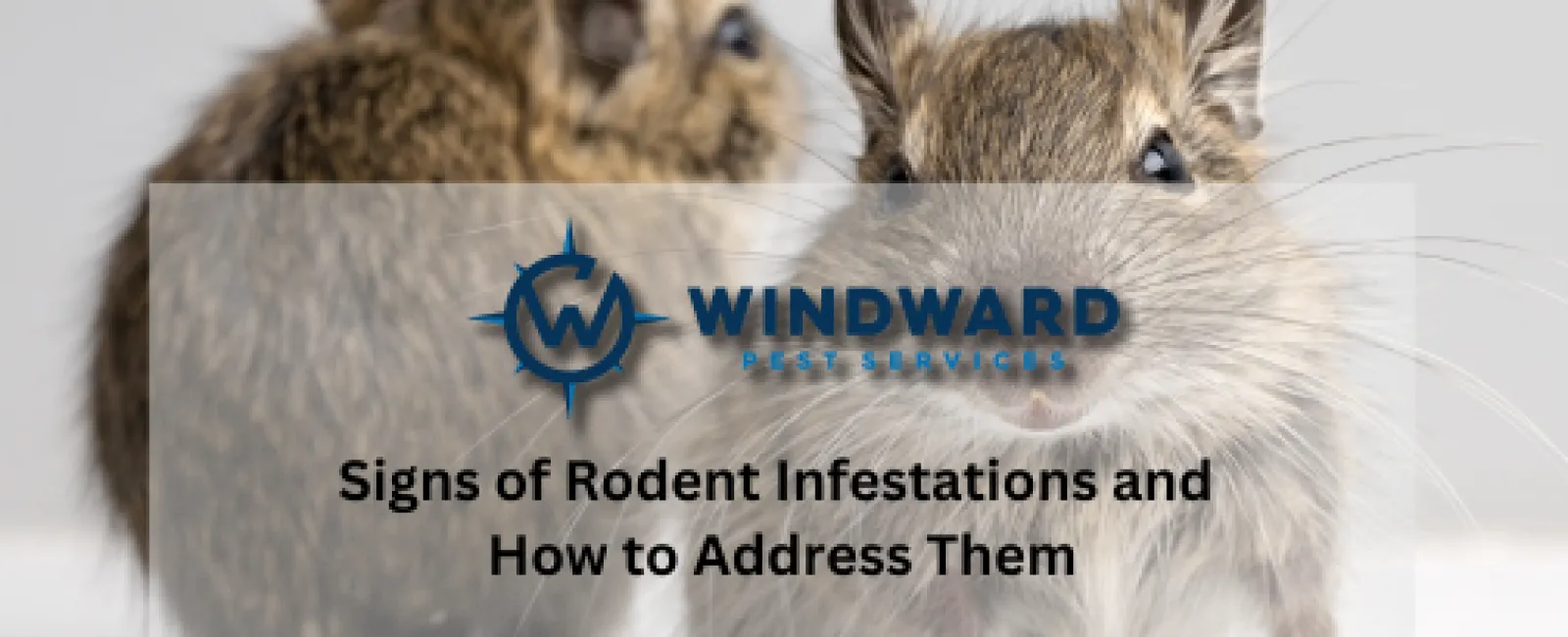Rodents, such as mice and rats, are notorious for causing property damage and posing health risks to humans. Identifying the signs of a rodent infestation early is crucial for effective pest management. Here's a closer look at common signs of rodent infestations and practical steps to address them:
Signs of Rodent Infestations
Droppings: Rodent droppings are one of the most obvious signs of an infestation. They are typically found along baseboards, inside cabinets, or in hidden corners.
Gnaw Marks: Rodents have strong teeth that they use to gnaw on various materials, including wood, plastic, and wiring. Look for chewed-up items, particularly in attics, basements, and crawl spaces.
Foul Odors: Rodent urine and feces emit a distinct, musky odor that becomes more noticeable in confined spaces. If you detect an unusual smell, especially in areas where rodents may hide, it could indicate an infestation.
Nesting Materials: Rodents create nests using materials like shredded paper, fabric, and insulation. Check attics, wall voids, and other secluded areas for nests or signs of nesting activity.
Scratching Noises: Rodents are nocturnal creatures, so you may hear scratching or scurrying sounds at night, particularly in walls, ceilings, or beneath floors.
How to Address Rodent Infestations
Seal Entry Points: Inspect your home for potential entry points, such as gaps around doors, windows, and utility penetrations. Seal any openings with caulk, foam, or wire mesh to prevent rodents from entering.
Remove Food Sources: Store food in airtight containers, clean up spills promptly and secure garbage bins to eliminate food attractants that may draw rodents indoors.
Trim Vegetation: Trim trees and shrubs away from your home to prevent rodents from accessing your roof or attic. Overhanging branches can provide easy access points for rodents seeking shelter.
Rodent Inspections: Schedule regular inspections with a licensed pest control professional to identify and address rodent infestations promptly. Professionals can assess the extent of the problem and recommend appropriate treatment methods.
Rodent and Wildlife Exclusions: Implement exclusion measures such as installing door sweeps, sealing gaps in foundations, and screening vents to prevent rodents from entering your home.
By taking proactive measures to identify and address rodent infestations, you can protect your property from damage and reduce the risk of health hazards associated with these pests.

